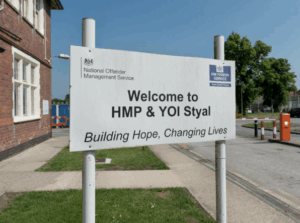Despite issues with energy retailers’ financial resilience emerging in 2018, Ofgem did not tighten requirements for new suppliers until 2019 or for existing suppliers until 2021, by which time wholesale gas and electricity prices had risen to unprecedented levels, according to the Public Accounts Committee (PAC). Since July of last year, 29 energy suppliers have failed, affecting approximately four million households. Customers have been left to bear the £2.7 billion cost of the failures, which amounts to an extra £94 per household and will “very likely increase,” according to the PAC. The committee came to the conclusion that this was due to “Ofgem’s failure to effectively regulate the energy supplier market,” adding that the regulator “did not strike the right balance between promoting competition in the energy suppliers market and ensuring energy suppliers were financially resilient.” It concluded that the price cap “provided only very limited protection to households from increases in wholesale energy prices,” noting that Ofgem expected prices to “get significantly worse through 2023.” Before making decisions about the future of energy price controls, the Department for Business, Energy and Industrial Strategy (BEIS) and Ofgem should “review the costs and benefits of the price cap from a consumer’s perspective.” The position of vulnerable customers, who already pay higher energy prices, was described as “unacceptable” by PAC. It also expressed doubt that Ofgem “yet has the skills and capacity it requires to take a more proactive role in regulating the energy supplier market.” “It is true that global factors caused the unprecedented gas and electricity prices that have caused so many energy supplier failures over the last year, at such terrible cost to households,” PAC chairwoman Dame Meg Hillier said, “but the fact remains that we have regulators to set the framework to shore us up for the bad times.” Energy supply market issues were evident in 2018 – years before the unprecedented price spike that sparked the current crisis – and Ofgem was too slow to act. “ Households will pay dearly, with bailout costs added to already high and rising bills. “Within six months, the PAC wants to see a plan for how the Government and Ofgem will put customers’ interests at the heart of a reformed energy market, driving the transition to net zero.” According to Rocio Concha, the Whichdirector ?’s of policy and advocacy, a “long-term” solution to rising energy costs is clearly required. “While additional assistance and the energy price cap guarantee provided short-term relief for many households,” she said, “it is clear that we require a long-term solution to soaring bills.” “The government and regulator must conduct an urgent review of energy pricing, including the price cap, in order to build a fair and affordable system for consumers.” The government should also develop a programme to rapidly improve home insulation, as this will help people save money on energy for years to come.”





































